Product information
$799
Finance Options

Interest-free available

Long term interest-free available

Interest-free available
5 black coffee sizes - espresso, double espresso, alto, gran lungo, and mug/coffee
4 hot milk styles - cappuccino, latte macchiato, espresso macchiato, and hot milk foam
Automatic cappuccino system
25 second heat up
One-button operation
Centrifusion technology
Auto clean system, flow stop and descaling alert
Used capsule container holds 6-10 capsules
Bluetooth and Wi-Fi connectivity
0.5 litre milk carafe capacity, 1.6 litre water tank capacity
Manufacturer's Warranty:
2 year warranty.
Coffee has become an integral part of our daily routine and many people who have an espresso machine at home, love the process – which starts with selecting their favourite beans, adjusting the grind and finally making the coffee.
Coffee pod machines produce essentially the same beverage as both machines force hot water at high pressure through coffee grounds. However the coffee pod is all about quickness and convenience whereas espresso machines are more about the art of coffee making.
The upfront cost of an espresso machine can also be a lot more depending on the model, but the individual cost of the coffee pods can make a coffee pod machine more costly in the long run because you're limited in the number of cups you can make with one pod. Personal preference is what dictates the purchase and whether convenience outweighs the craft of getting one’s coffee exactly right.
A clue should be in the fact that most juicer models come with specific cleaning brushes. Some machines also have separate pulp containers, but the simple fact is that after using these machines, they will always need to be thoroughly cleaned and the mesh filters should be scrubbed with brushes to remove every last bit of fibre or pulp.
Whilst laborious, it’s not difficult work, and once you have done it a few times, you’ll develop the best and quickest cleaning method. On the upside, the health (and taste) benefits of freshly juiced fruit and vegetables should outweigh any cleaning hassles.
Experts will say that a separate quality grinder is better as most espresso machines with built-in grinders do not offer the same number of grind sizes, or intricate grind settings. And why is the grind important? As coffee lovers will tell you – the grind can be the difference between a great coffee and one that is too bitter to drink. It's also handy to have a separate coffee grinder if you have other methods to making coffee, such as french press, percolator or a batch brew, which all call for different grind settings.
However many espresso machines offer built-in grinders and for most people who are not moonlighting as baristas, these two-in-one appliances offer space-saving convenience and all the grind options they will ever need.
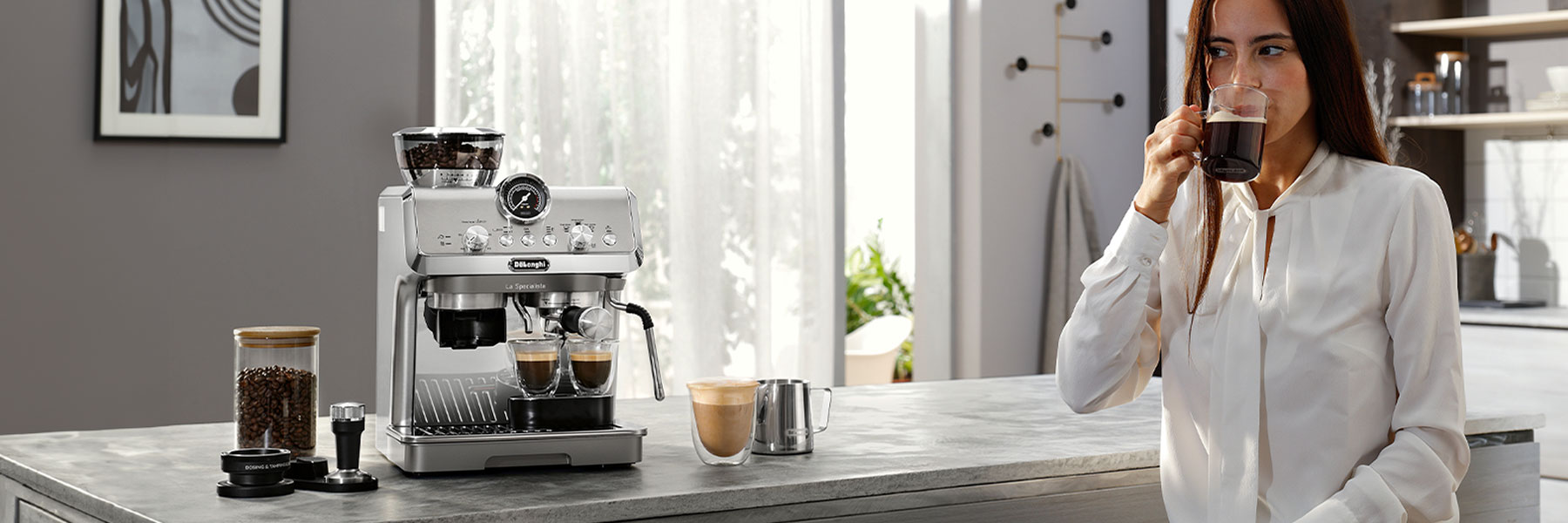
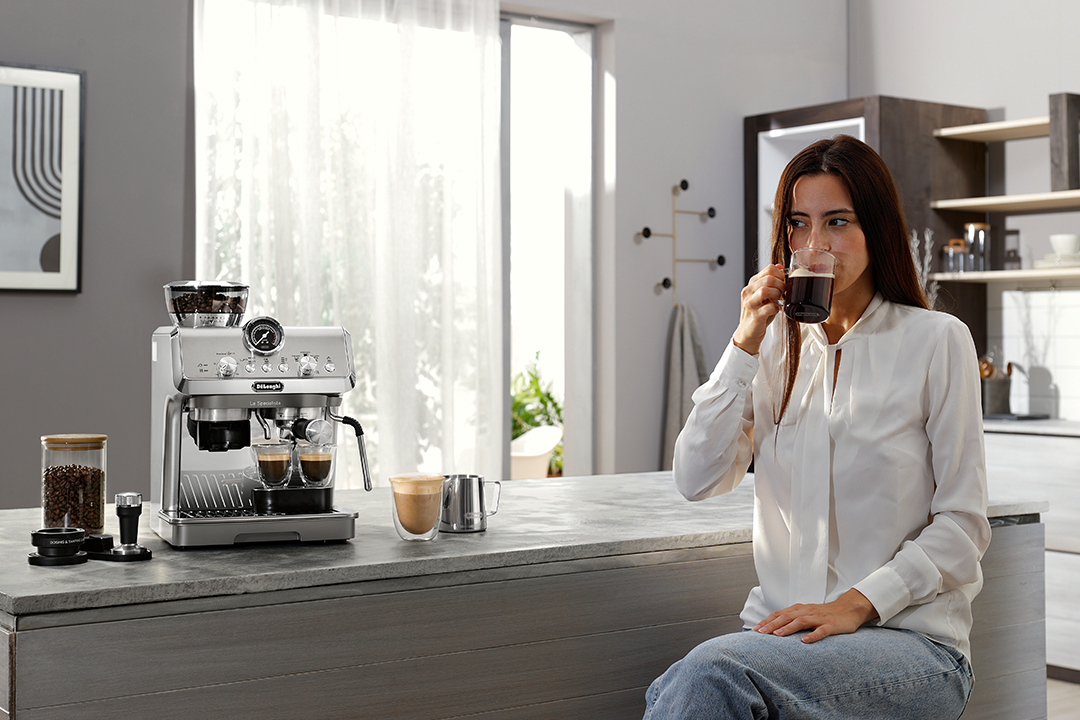
Coffee Machine
Buying Guide
For many of us, having a coffee is one of life’s pleasures. We all have our favourite local café but buying those daily take-out coffees does add up and having a coffee machine at home can help with the budget. But even if you are not a wannabe barista, the challenge of making the perfect brew can be daunting. Luckily there are many options available on the market today that will pretty much sort your coffee at the push of a button. So what do you choose? What sort of coffee do you like? Do you want a fully automatic or more manual machine? Do you want to grind your own beans or do you prefer the convenience of a pod/capsule machine?
Here are some important factors to consider:
Types of Coffee Machine
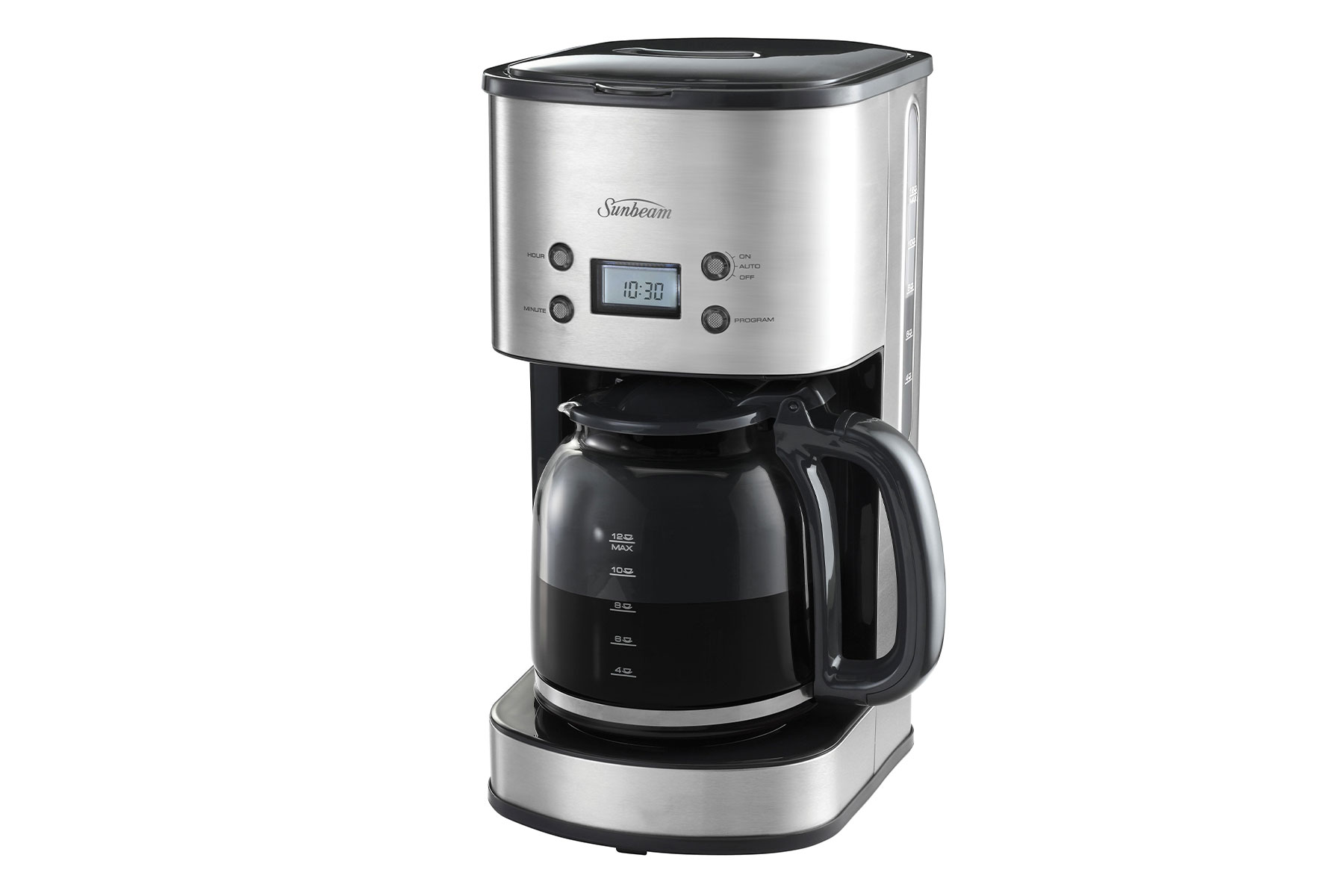
Drip Coffee Maker
Suitable for those who prefer a simple brewing process and want to make multiple cups at once.
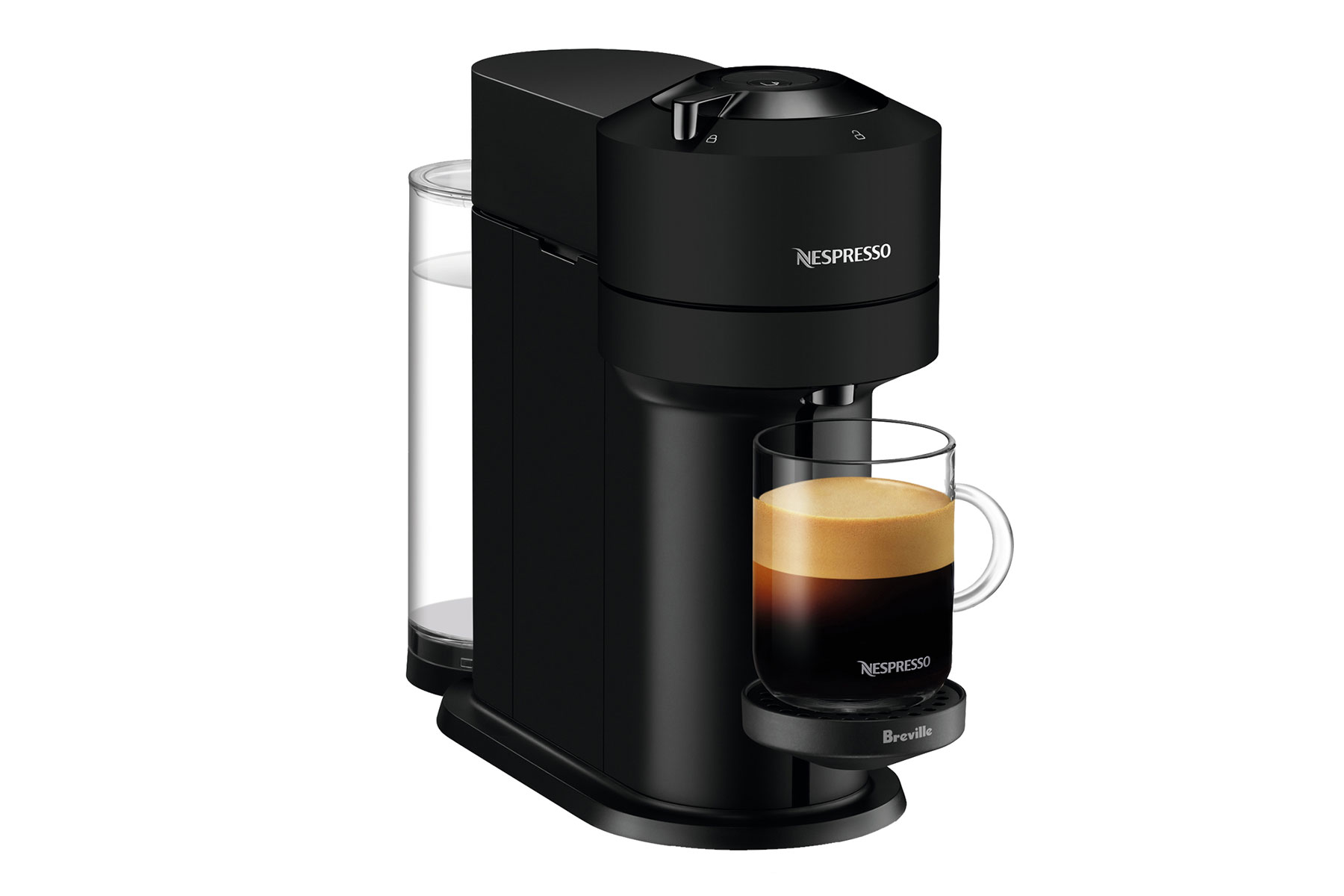
Capsule or Pod Coffee Machine
Offers convenience with pre-packaged coffee pods and minimal maintenance.
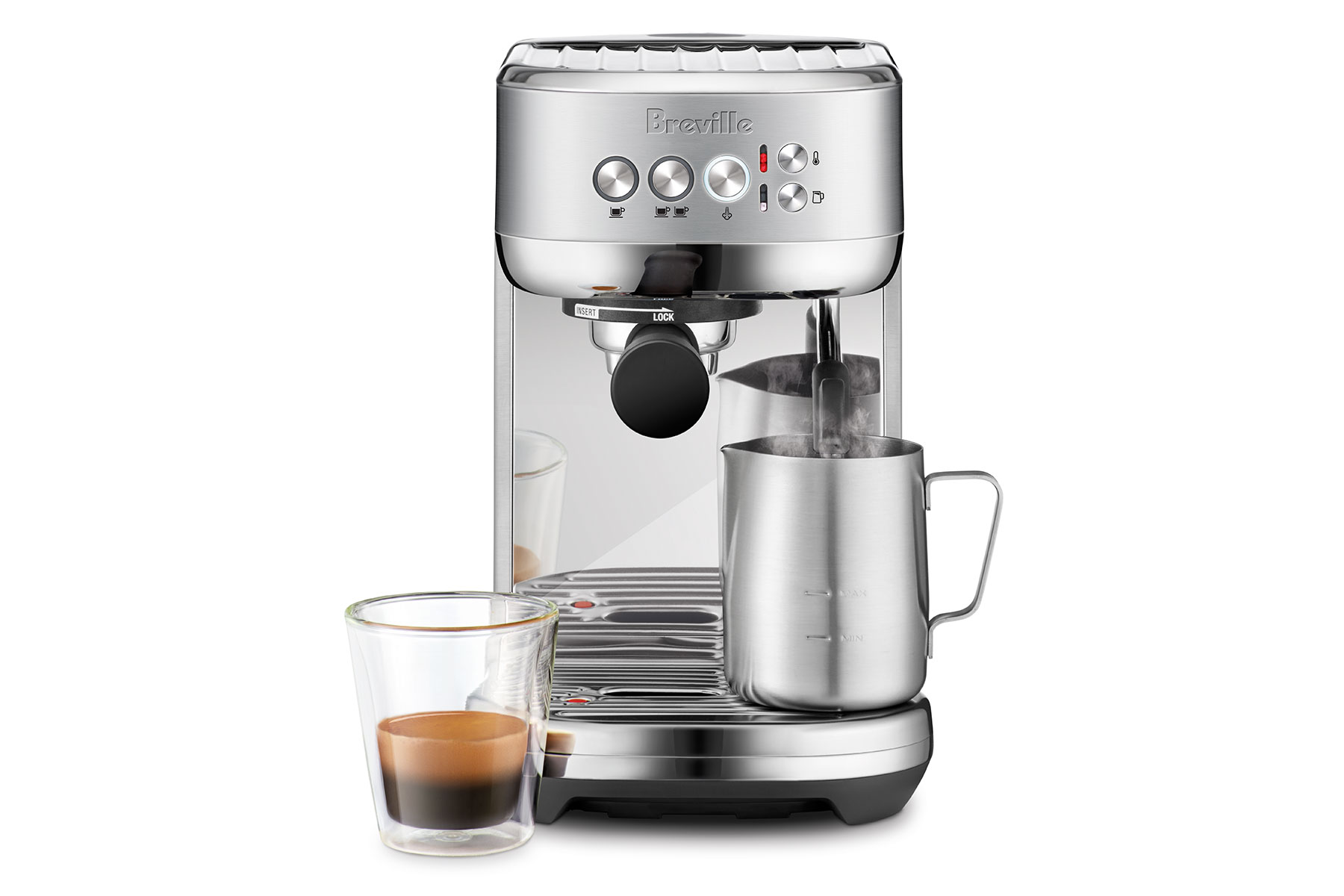
Manual Espresso Machine
Ideal for those who prefer the control of the ‘process’ and enjoy strong, concentrated coffee.
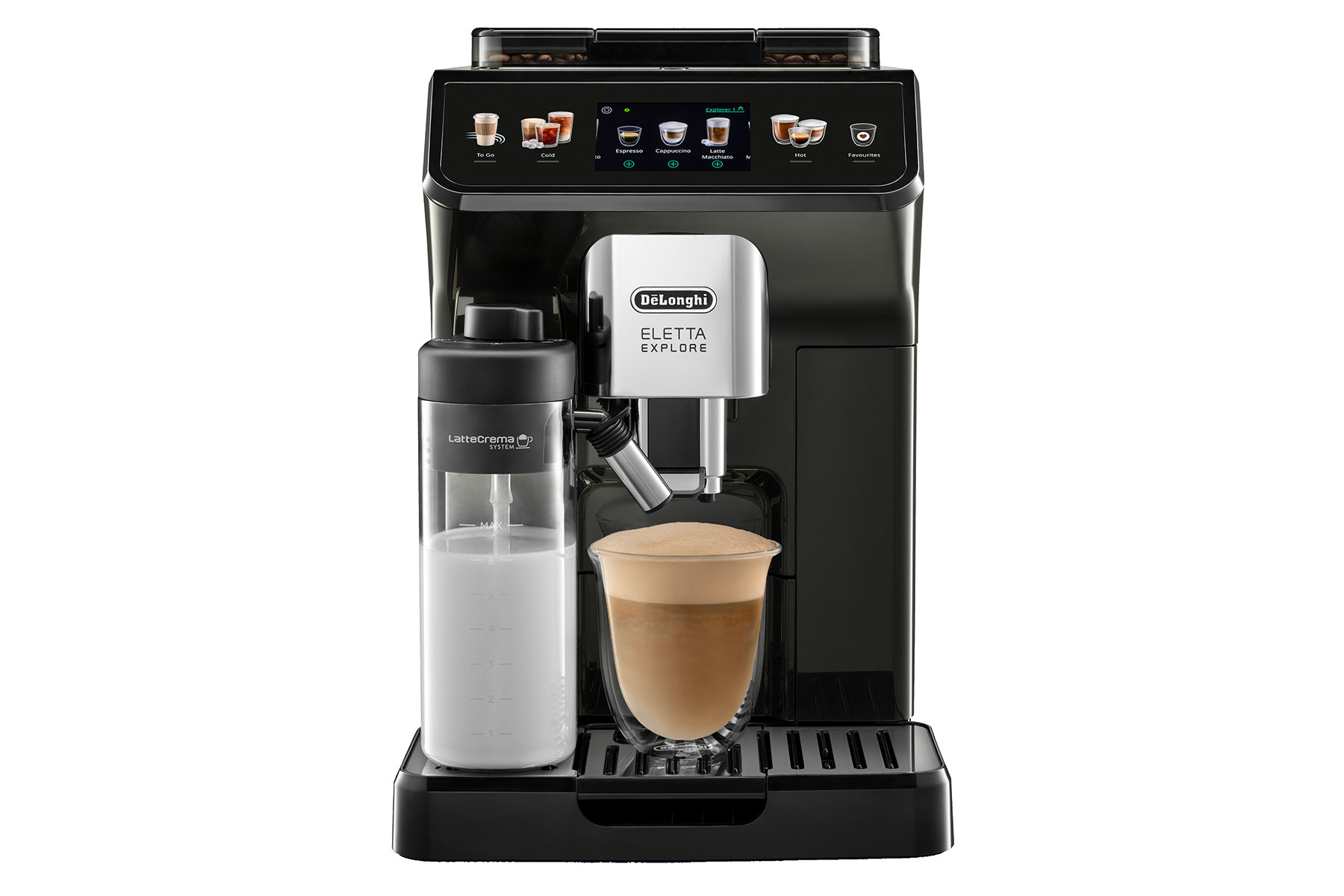
Automatic Espresso Coffee Machine
All-in-one automation and convenience with the ability to customize your coffee.
Things to consider
Brewing Capacity
Consider the number of people in your household who will be using the machine regularly. Some machines are designed for single servings, while others can brew multiple cups at once.
Grinding Options
If you prefer using freshly ground coffee beans, consider a machine with a built-in grinder. This ensures a more aromatic and flavourful cup. However, if you opt for a more manual machine – you will need to buy a separate grinder.
Pressure and Temperature Control
Espresso enthusiasts should pay attention to the pressure capabilities of the machine, as well as its ability to control water temperature ( ideally at around 93 degrees C).
Consistent pressure and temperature are crucial for extracting the best flavours from coffee. The ideal level of BAR passing through your coffee grounds should be around 7-11 BARs of pressure, though some espresso machines will be able to hit higher BAR. Machines capable of hitting 9 BARs of pressure will have the ability to produce a rich and concentrated espresso shot. To put this in context, the earth’s atmospheric pressure is 1 BAR, so the water needs to be passed through the coffee at 7-11 times the pressure of the earth.
Milk Frothing Capability
For those who enjoy milk-based drinks like lattes and cappuccinos, a machine with a milk frother or steamer is essential. The fully automatic espresso machines and many pod machines offer the milk-frothing capability as built-in, but with drip-style machines and some of the entry-level pod machines, you will need to buy a separate milk frother.
Ease of Cleaning
Machines with easily accessible and removable parts make cleaning a breeze. Regular maintenance is crucial for the longevity of the machine and the quality of your coffee. A drip coffee and pod machines are generally simpler to clean although the larger automatic machines do come with clear cleaning and maintenance instructions.
Cost of Consumables
Consider the ongoing costs associated with your chosen machine, including filters, ground coffee, beans, and pods/capsules. Some systems may have higher ongoing expenses.
Exploring Different Types
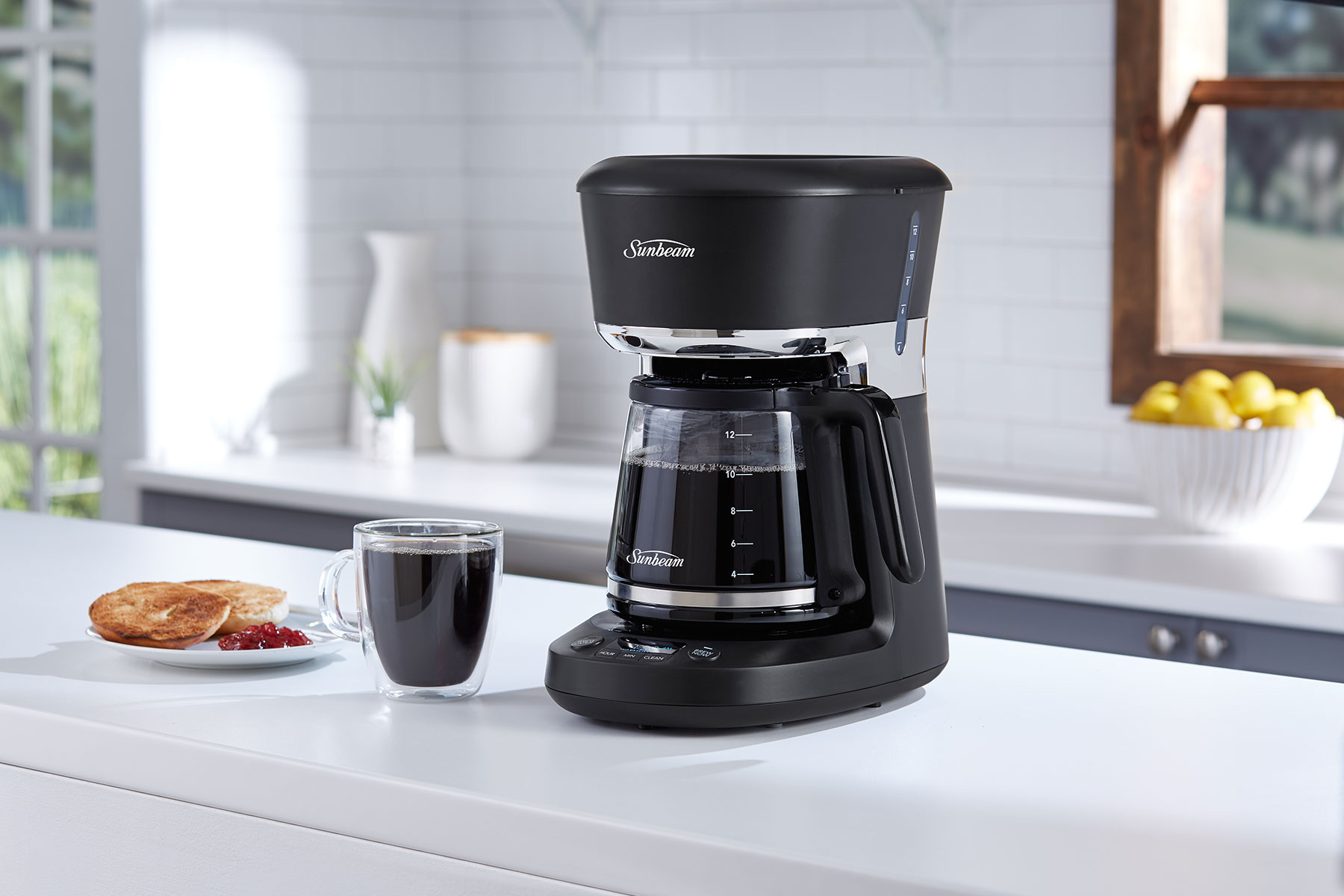
Drip-Style or Filter Coffee Machine
Drip-style or filter coffee machines have been around for a long time and remain a popular choice for those who appreciate a straightforward brewing process and the ability to make multiple cups at once. These machines are known for their simplicity and efficiency and are able to brew larger quantities of coffee. User friendly, they are easy to clean and cost-effective.
Key Advantages
Easy to use and clean. Suitable for making numerous cups of coffee at once.
Downsides
Many use disposable filters although reusable filters are becoming more common. Basic coffee offering which doesn’t cater for the espresso, latte or cappuccino lovers.
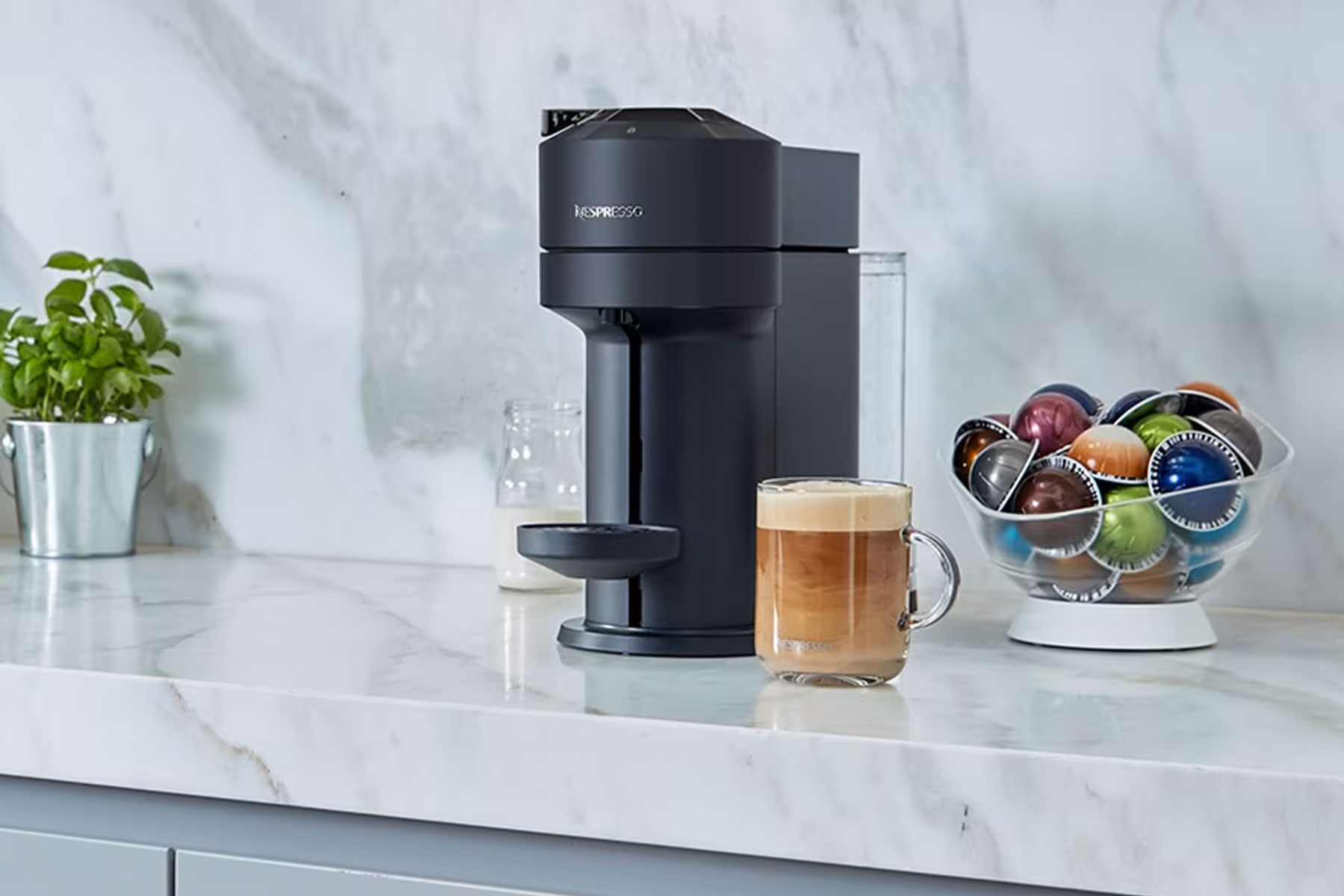
Pod/Capsule Coffee Machine
Pod or capsule coffee machines have gained immense popularity over the last few years for their convenience and ability to produce a variety of excellent coffee beverages quickly. These machines use pre-packaged coffee pods or capsules, making the brewing process simple and mess-free. Some entry-level models have separate milk frothers but many include these as an integral feature
Features and Benefits
Convenience
One of the standout features of pod machines is their unparalleled convenience. Users simply insert a pre-packaged coffee pod or capsule into the machine, press a button to select their coffee style, and enjoy a freshly brewed cup of coffee in a matter of seconds.
Flavour Choices
Pod coffee machines offer a wide range of coffee flavours and blends, catering to diverse taste preferences. Users can easily switch between different pods to enjoy espresso, lungo, cappuccino, and other specialty drinks.
Consistent Brewing
Pod machines ensure consistent brewing results with every use. The pre-measured coffee in each pod guarantees a standardised amount, eliminating the need for users to measure coffee grounds or adjust grinding parameters.
Minimal Cleanup
The use of pre-packaged pods significantly reduces the mess associated with traditional coffee brewing. There are no loose coffee grounds to deal with, and the spent pods can be easily discarded without the need for extensive cleaning.
Compact Design
Pod coffee machines are often compact and space-saving, making them suitable for small kitchens, home offices, or other areas with limited counter space. Their sleek design also adds a modern touch to the kitchen.
Quick Brewing Time
Pod machines are known for their speed. The brewing process typically takes only a minute or two, making them an excellent choice for individuals with busy lifestyles who want a quick and efficient cup of coffee.
Key Advantages
Pod coffee machines are exceptionally user-friendly, quick and mess-free. Coffee pods in their sealed air-tight packaging also have a longer shelf life compared to traditional coffee beans or grounds. Some pod machines offer customisation options allowing users to tailor their coffee to their taste.
Downsides
The upfront cost is usually less than a fully automatic espresso machine but there is an ongoing cost of pods. However there is less wasted coffee with pods, so this needs to be weighed up. Although there are some environmental concerns with single-use pods, some brands also offer recyclable or compostable pods.
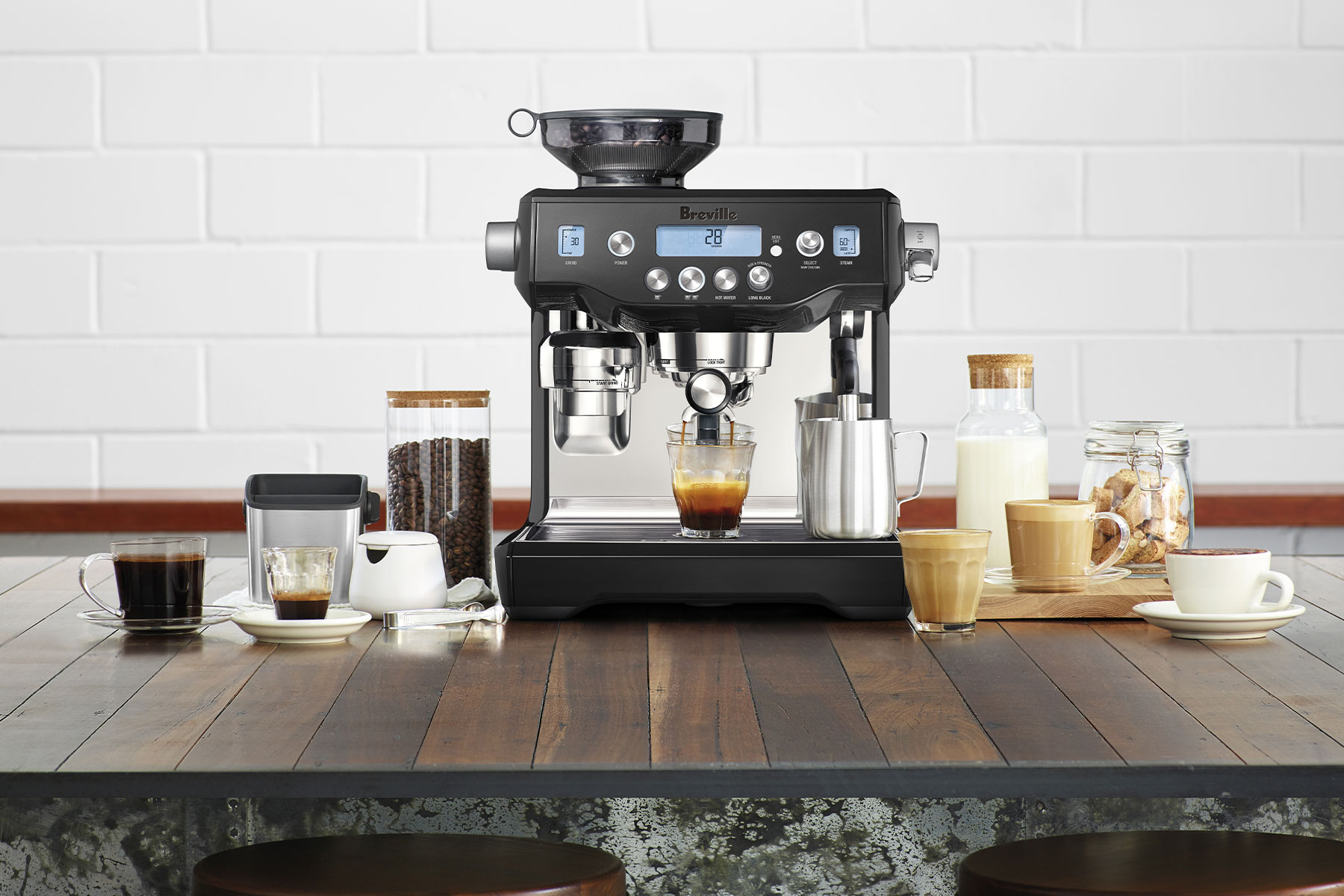
Manual Espresso Machines
Manual coffee machines are what wannabe baristas or coffee aficionados would like to claim mastery over. Making a good shot takes a lot of learning—and a lot of love for good espresso—to get it right.
Manual espresso coffee machines provide coffee enthusiasts with a hands-on and customisable approach to brewing espresso. These machines require more skill and involvement from the user but offer a level of control and authenticity that many coffee lovers appreciate.
Features and Benefits
Control the brewing process
The primary feature of manual espresso machines is the level of control they offer. Users have direct control over the entire brewing process, including the pre-infusion, pressure, and extraction time, allowing for a customised and precise cup of espresso.
Authentic Espresso Experience
Manual machines provide a more traditional and hands-on espresso-making experience, which can be appealing to those who appreciate the artistry and craftsmanship of coffee preparation.
Customisable Brewing Parameters
Users can experiment with various factors, such as grind size, tamping pressure, and water temperature, to achieve their desired espresso profile. This level of customisation allows for a tailored coffee experience.
Key Advantages
Users have complete control over brewing parameters, allowing them to experiment and tailor their espresso to personal preferences. These machines are often more durable than some fully automatic machines, having fewer parts to maintain.
Downsides
Using a manual espresso machine requires a bit more learning and practice. The brewing process is also more time-consuming, especially if you are making coffee for more than one person. You’ll also need to purchase a separate coffee grinder as well as a milk frother for your lattes and cappuccinos.
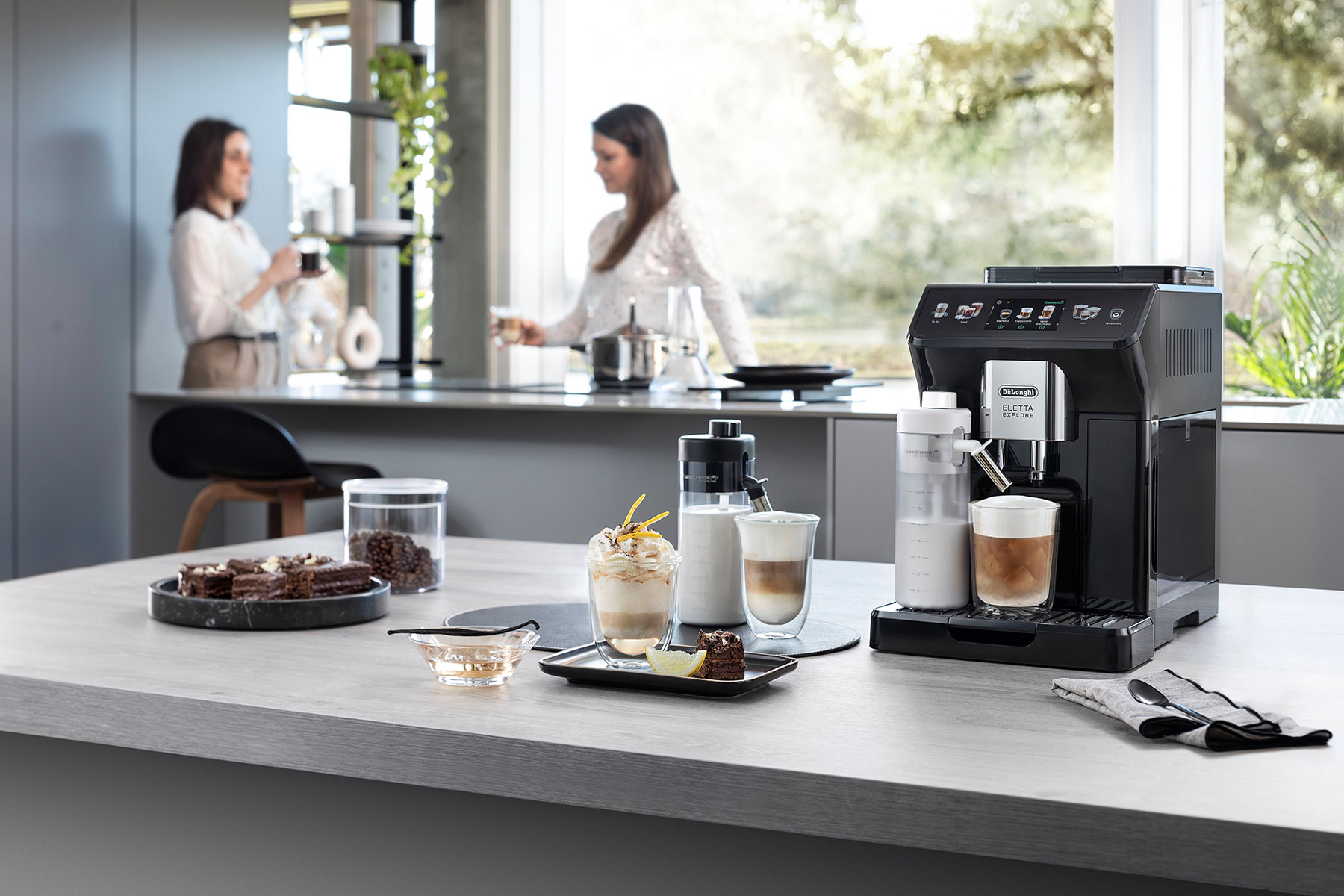
Automatic Espresso Coffee Machines
Ready to improve your morning coffee ritual? These automatic espresso machines offer all the functionality you need while taking up significantly less counter space – with some offering an espresso machine, coffee grinder and milk frother all in one. Most of these machines also allow you to store whole beans in the hopper, and have generous water and milk reservoirs.
When it comes to making espresso, the right grind size is crucial, as even a small variation in fineness can make a vast difference in flavour. These automatic machines are equipped with up to 25 grind settings, which makes it possible to create the perfect shot of espresso every time. Some also have an assisted tamping mechanism which not only helps with getting the perfect blend but also helps ensure that grinds don’t go all over your countertop.
There is a wide range of automatic espresso machines to choose from. Some have unique features such as a cold brew setting and others can adjust the milk steaming depending on what type of milk you are using – dairy or plant-based. They are easy to use with easy-to-understand controls.
Features and Benefits
Convenience
Automatic coffee machines are known for their user-friendly interfaces and the ability to produce a variety of coffee styles with minimal effort.
Customisation
Many automatic machines allow users to adjust settings such as coffee strength, grind size, temperature and milk options, providing a personalised coffee experience.
Consistency
These machines maintain a consistent brewing process, ensuring that each cup meets a high standard in terms of flavour and quality.
Grinding Options
Most automatic machines come with built-in grinders and a number of settings, allowing users to set and forget and enjoy their favourite cup of coffee every time.
Key Advantages
User-friendly operation with customisable and versatile coffee options. They provide consistent results without requiring expert knowledge.
Downsides
Higher upfront costs and maintenance can be more complex. Limited control for coffee purists as most functions are automated.

In conclusion, choosing the right coffee machine depends on your personal preferences, lifestyle, and desired level of customisation. If you’re old school and want simplicity, a drip filter machine may be the right choice, but if you value convenience, variety, and ease of use at 7 am, a pod machine might be suitable. On the other hand, if you enjoy the art of coffee making, want more control over the brewing process, and appreciate the aroma of freshly ground beans, an automatic espresso coffee machine could be an option for you.